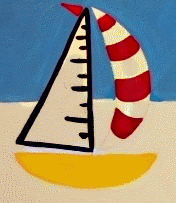Allergy Medications
The medications that are used to control the symptoms of allergic rhinitis include decongestants, antihistamines and anti-inflammatories. If symptoms are mild, you can use over-the-counter medications as needed. Avoid using topical decongestants (such as Afrin).
Antihistamines
Benadryl (diphenhydramine) is effective but short-acting and may cause drowsiness. We recommend all homes have this on hand in case of an allergic reaction.
Long acting anti-histamines such as Claritin (loratadine) or Zyrtec (cetrazine) are now over-the-counter.
Anti-inflammatory nasal sprays
Over the counter options include Nasonex, Flonase, and Nasacort (generically fluticasone, usual dose is 1-2 squirts in each nostril once each day). If your child's symptoms are well controlled, then you can decrease the dose of the nasal steroid that you are using for 1-2 weeeks and then consider trying your child off of it and see how they do. Continue the antihistamine for 1-2 months or until your child's allergy season is over.
Singulair is another medicine for kids with allergies. Although previously just used as a preventative medication for kids with asthma, it is now also approved to treat allergies. It is available as a chewable tablet and is approved for kids over age one.
To be effective, your child should be using these medications every day. They will not work as well if just used on as-needed basis. They are in general very safe with few side effects, but the nasal steroids have been associated with growth suppression when used in high doses. This is, however, rare, and your pediatrician will monitor your child's growth to make sure this does not happen.
Allergic Eyes
Red, itchy eyes can be treated with over-the-counter eye drops; either Alaway or Zaditor drops both work well.
For seasonal allergies, it is best to start using these medications just before your child's season begins and then continue the medications every day all through the season. For perennial allergies, your child may need to take these medicines year round.
Your child may also benefit from nasal irrigations using saline nose drops 1-3 times a day. This will help the sinusues drain.
Allergy Prevention
These steps help to control common allergens, including dust mites, mold, animal dander and pollens.
°Get rid of dust collectors, including heavy drapes, upholstered furniture, & stuffed animals.
°Use an airtight, allergy-proof plastic cover on all mattresses, pillows and box springs.
°Wash all bedding and stuffed animals in hot water every 7-14 days.
°If you must keep pets in the house, at least keep them out of your child's bedroom and wash your pet each week to remove surface allergens.
°Avoid exposing your child to molds by keeping him away from damp basements or water-damaged areas of your home (check under carpets).
°Remove carpeting if possible.
°Vacuum frequently (when your child is not in the room, since many of the things that cause allergies are small enough to go back out of the vacuum cleaner bag).
°Cover air vents with filters.
°Avoid the use of ceiling fans.
°For seasonal allergies, keep windows closed in the car and home to avoid exposure to pollens and limit outdoor activities when pollen counts are highest (early morning for spring-time tree pollens, afternoon and early evening for summer grasses, and in the middle of the day for ragweed in the fall).
°Consider using a HEPA filter to control airborne allergens (those only work if what you are allergic to is airborne, which doesn't include dust mites and mold).
°Keep indoor humidity low, since dust mites and mold increase in high humidity.
°Provide a smoke-free environment for youur child (it is not enough to simply smoke outside).
°Nightly shower ot bath to wash hair.

